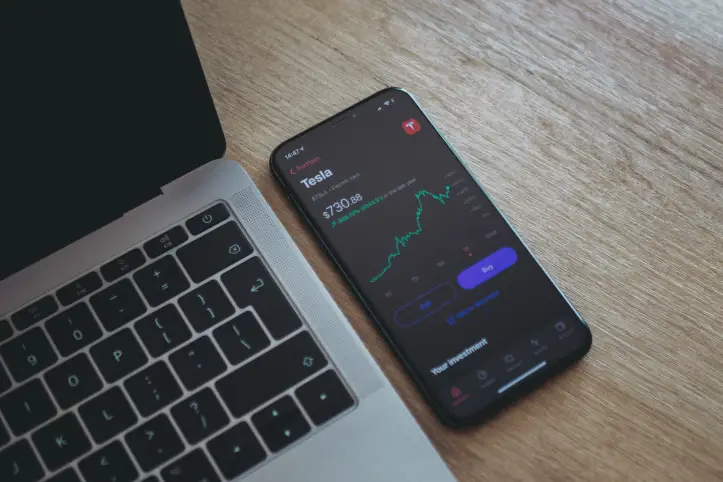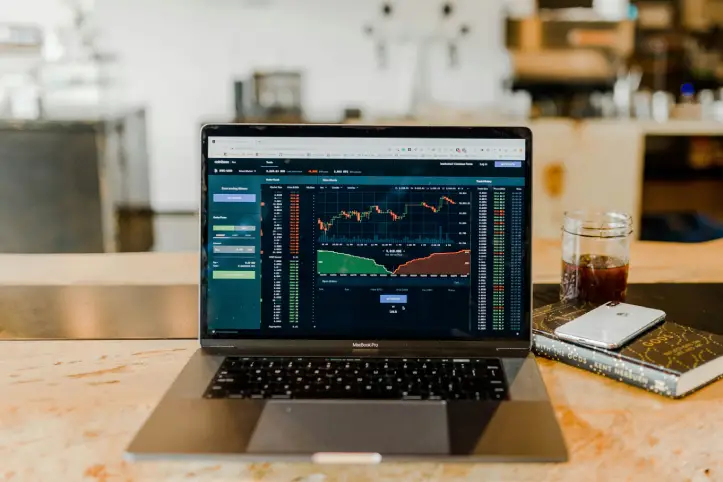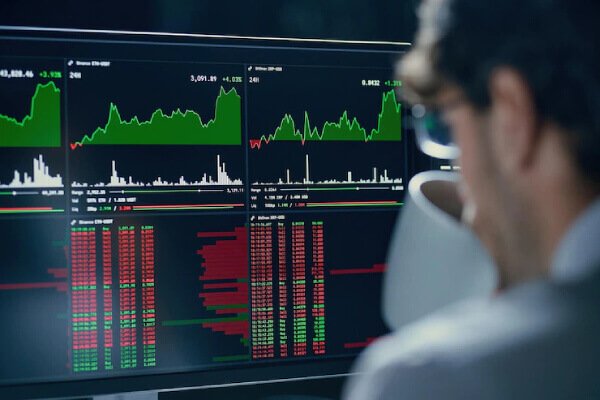I’ll explain the distinction between demat and trading accounts in as few words as possible.
Most newcomers to the stock market are aware that they will require a demat and trading account to begin trading/investing in India. However, most newcomers are unaware of the distinction and mistake a Demat account for a trading account. However, each of these accounts is wholly different and serves very different objectives.
Difference between demat and trading account
— Trading Account
A trading account is a way to purchase and sell stocks on a stock exchange. To put it simply, it is used to place buy and sell orders for stocks on the exchange.
Different stockbrokers provide their clients with various trading tools to help them simplify their deals. For example, Angel One, India’s largest brokerage, provides ‘Angel SpeedPro’ as a platform for trading equities. After you’ve created a trading account with a stockbroker, you may use those platforms to place buy/sell orders.
— Demat Account
Demat account is an abbreviation for ‘Dematerialised account’. It’s equivalent to having a bank account. Similarly to how money is maintained in a savings account, your purchased stocks are held in a demat account.
In other words, a Demat account is a facility where equities purchased are placed and stocks sold are removed. Demat accounts are exclusively used for stock storage and not for transactions (buying/selling).
Example of Demat and Trading Accounts
Let’s look at an example better to grasp the distinction between trading and demat accounts. Assume you want to acquire 100 Maruti Suzuki shares. The operation will be carried out in the following order:
- To begin, you must have money equal to or more than the purchase amount in your savings account.
- The funds will then be transferred from your savings account to your trading account.
- You will now purchase ‘Maruti Suzuki’ shares from the stock exchange using your trading account and paying the sum.
- Finally, funds are transferred to the seller via your trading account, and ‘Maruti Suzuki’ equities are transferred to your demat account.
Assume that after a few months, you want to sell 20 shares of ‘Maruti Suzuki’ from your total holdings of 100 shares. The following is the sequence that will be followed in this case:
- To begin, you will use your trading account to issue a sell order on the market to find a buyer.
- If a buyer is identified, the shares will be transferred from your demat account to the buyer.
- Finally, the proceeds from the sale of your equities will be sent from your trading account to your connected savings account.
Quick Fact About Demat Account
There were no demat accounts in India before the internet became ubiquitous. When you bought stocks (on paper), you were given share certificates. However, there were several drawbacks to adopting paper share certificates. They were torn, stolen, had safety problems, or the ink just faded away with time.
Nonetheless, after being removed from the internet in the mid-1990s, equities began to be maintained in electronic dematerialized form in the purchasers’ demat accounts. It addressed the majority of the shortcomings of the traditional paper share certificates.
A few other points to know about demat and trading account
- Most popular stockbrokers in India open demat and trading accounts simultaneously (sometimes known as a 2-in-1 account). For instance, Angel One, Zerodha, Upstox, and so forth.
- A few large stockbrokers (usually bank brokers) also provide their clients with a 3-in-1 account, i.e. a Saving+Demat+Trading account. For instance, ICICI Direct, HDFC Securities, and so forth.
- A trading account generally has no yearly maintenance charges, however, a Demat account may have a maintenance price that varies from broker to broker. It is normally between Rs 300 and 400 every year.
- Investors and traders may now open immediate (paperless) demat and trading accounts with major stockbrokers in as little as 10 minutes. Nonetheless, offline account opening is still popular in India and is provided by all of these brokers.
- Account opening fees for demat and trading accounts differ from broker to broker. A few brokers provide free account registration. The bulk of them, however, would charge you between Rs 300 and Rs 500 to start your brokerage account.
- Furthermore, you may open numerous demat and trading accounts with the same PAN card. For example, you can have two accounts: one in ICICI Direct and one in Zerodha.
- Finally, to avoid excessive expenses and hazards, pick your broker carefully when opening your demat and trading accounts.
Summary
Let us briefly review everything we covered in this essay on trading and demat accounts in India.
A trading account provides a platform for buying and selling stocks on the market. It serves as a bridge between your savings and demat accounts. To put it simply, it withdraws shares from your demat account and sells them on the market.
It, on the other hand, withdraws funds from your savings account and purchases a share to be held in a demat account. A Demat account also allows you to store your shares in an electronic dematerialized form.
That’s all there is to it. I hope the readers found my post on the distinction between a demat and a trading account beneficial. If you have any questions, please leave them in the comments section. I’d be delighted to assist you. Good luck with your investments!
















